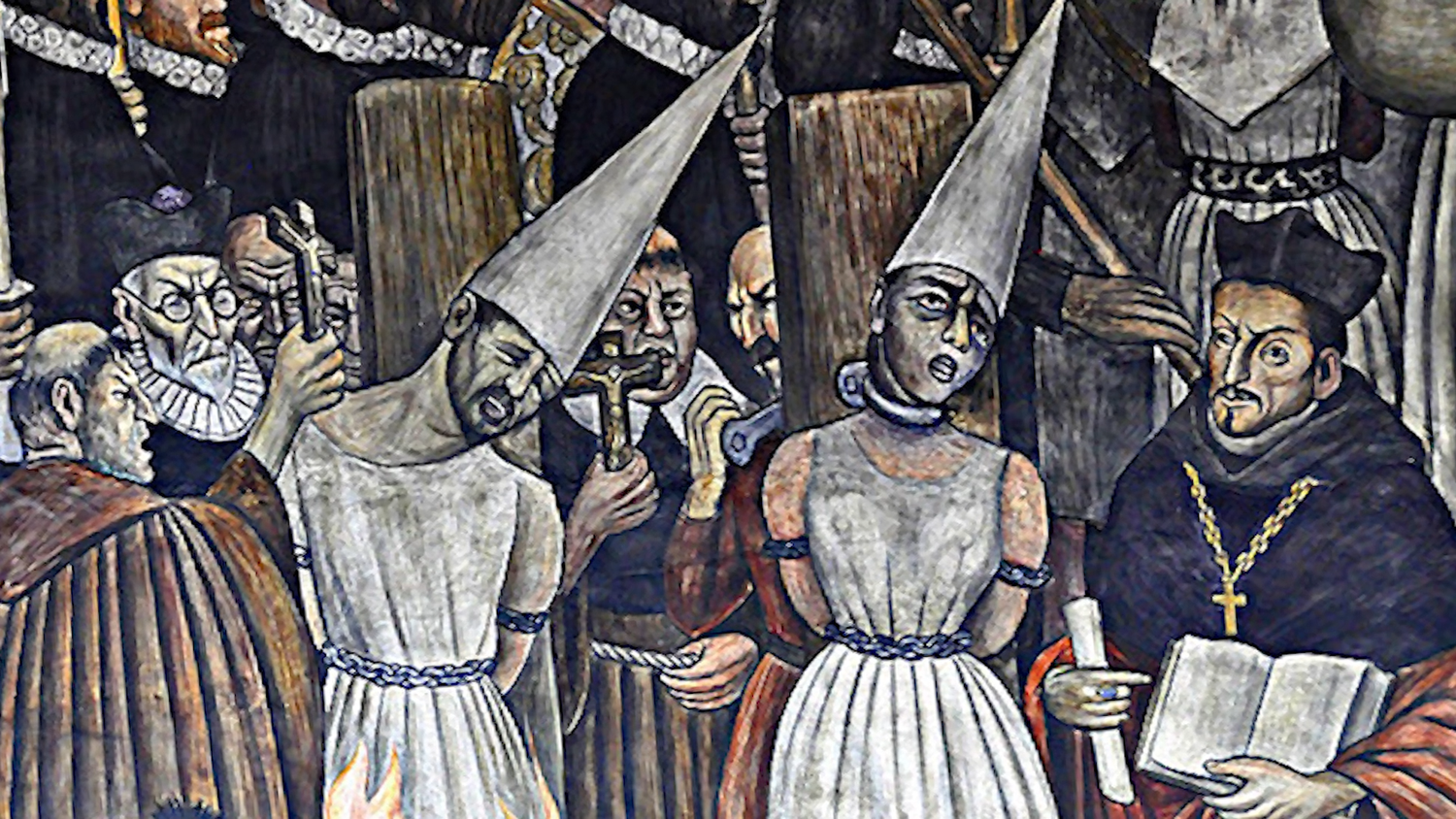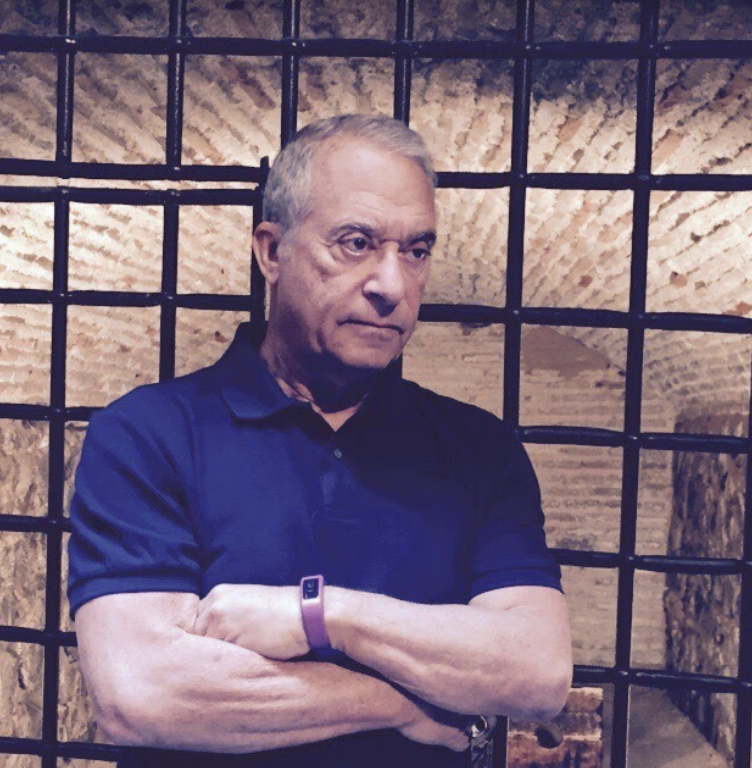‘Children of the Inquisition’: A Riveting Exploration Of The Jewish Diaspora
Mexican Inquisition. (Image courtesy of “Children of the Inquisition” )
(REVIEW) Joseph Lovett’s “Children of the Inquisition” is a feature-length documentary exploring the worldwide Sephardic diaspora and recounting the history of various Jewish families seeking refuge during the Spanish Inquisition.
“Children of the Inquisition” shows the stories of various individuals descended from the diaspora, all from different nationalities and cultures, on a quest to unearth their Jewish heritage. Because the Jewish families of the diaspora kept their identities hidden, their descendents had little to no knowledge of their families’ true faith background. Families continued to flee from Spain and Portugal during the period of the Inquisition and further persecution up until the late 19th century.
While the documentary was initially released in 2019, it was shown at the Catholic-operated Sheen Center theater in New York City in an effort to promote religious diversity and freedom, as well as the exchange of ideas between religious faiths.
“This is a documentary about religious liberty or lack thereof,” the Rev. Ryan Muldoon of St. Joseph’s College said during the panel discussion after the film. “And the church said at the Second Vatican Council that religious freedom is a human right, that religious freedom must be a civic right acknowledged by every nation and every state. We as the Catholic Church have had to come to terms with such dark periods of our history, like the period featured in this documentary. But we … have learned from some of those periods and say that it is not for Christians but for all human beings, created in God’s image and likeness, that religious freedom is a fundamental right.”
After the collapse of the Second Temple, Jews constituted 10% of the Roman Empire. As early as the fourth century, many Jews began to migrate to and settle in Iberia as Christianity expanded in Europe. At the time, according to the film, Christians consistently resented and blamed the Jews for crucifying Jesus Christ and frequently used them as scapegoats for societal issues. While there were brief periods of peace between Jews and Christians, the two groups have mostly existed in some degree of conflict with each other. Jewish males were almost universally literate and represented a different educated class of elites, which engendered jealousy among the Catholics.
The word “Sephardic” comes from the Hebrew word “Sefarad,” meaning “Spain.” Hence, “Sephardic” refers to the diasporic Jewish population that left the Iberian peninsula because of persecution in the 15th century. Ardent Spanish monks sparked a national persecution of Jews as early as 1391, and within 50 years, half of the Spanish Jews converted to Christianity. These “conversos” were strictly prohibited from engaging in any Jewish practice, such as kosher food regulations and rituals such as the Passover. These new Christians could not even engage with their Jewish family and friends. Each of these offenses was punishable by death.
Thomas Madden, Historian at St. Louis University, said that the Spanish Inquisition was “a unique situation in Western Europe.”
“Elsewhere in Europe, they simply expelled the Jews,” he said. “In 1290 in England, 1505 in France, they just simply expelled them all. Spain accepted them, and the conversion campaigns in 1391 created a very unique framework, which is what ultimately led the crown, reluctantly, to create the Spanish Inquisition.”
Importantly, Madden provided some much-needed historical context to further illuminate the thought behind the inquisition, however immoral the results of that form of thinking seem to be.
“The early modern period was very different from the one we live in today,” Madden added. “We think of governmental power as being something that comes from the people. That’s both an ancient and a modern idea. In these kingdoms though, power comes from God. God gives that power to the king, and the instrument by which he does it is the anointing of his coronation by the church. That means that if you deny the teaching authority of the church, you deny the authority of the king. That’s why heresy in the Middle Ages is considered a capital offense, because it’s treason.”
Because of this, the adherents of the Inquisition thought that they were justified in their violent treatment of the Jews and saw the Inquisition itself as a means to save the souls of the heretics and to expel heresy, which they saw as dangerous. The Rev. Muldoon noted that the Inquisition “was after truth as it saw, but of course, by all the wrong means and in the wrong ways.”
Inquisition torture on the rack. (Image courtesy of “Children of the Inquisition”)
The crypto-Jews, regardless, attempted to “Judaize” Christianity by rebelliously and inconspicuously keeping Jewish practices like the Sabbath in their lives, or customs like Hebrew songs or prayers. It is these practices that have been preserved in family lines and lasted until the modern day. As the Inquisition became increasingly fervent, the people called for a committee of inquiry, which would inquire into each person’s religious beliefs in order to snuff out practicing Jews. Citizens who reported whereabout of the Jews were handsomely rewarded, and so everyone was consistently watching and being watched. Arbitrary arrests, public trials, and gruesome torture were the sequential norms until a confession was extracted from the victims.
The Inquisition was officially established in Seville by 1480. After the conquest of the final remnants of the Muslim Empire, Spanish monarchs Isabella and Ferdinand issued the Edict of Expulsion, which immediately forced all practicing Jews out of Spain. While King João I of Portugal offered the Jews temporary relief, the Inquisition overflowed into Portugal in 1537 because of the pervasiveness of the Jewish practices.
One of the many family lines that the documentary traces is that of Carlos DeMedeiros, a Brazilian-born artist now living in New York City. As some Sephardic Jews headed east and settled in the Ottoman Empire, many journeyed to the New World. According to the film, Christopher Columbus’ navigator, physician and interpreter were all from newly converted Jewish families. One of DeMedeiros’ ancestors, Branca Dias, was part of this early wave of Sephardic Jews that immigrated to Brazil in the late 15th and early 16th centuries. Today, she is known as one of the sparks that lit the beginning of Judaism in Brazil.
Many other Iberian Jews later fled to the Netherlands in the 16th century because of its religious tolerance. Later, when the Dutch began to occupy parts of northeastern Brazil in the 17th century, these Sephardic Jews eventually began to settle in the regions of Ceará, Pernambuco, and Maranhão. These same Jews built synagogues and kept Jewish tradition, as the documentary shows, one of which is still standing in the city of Recife today on the Rua dos Judeus (which translates to “road of the Jews”). Their Jewish faith was of paramount importance to them, but the concept of secrecy prevailed because the open practice of Judaism was still technically prohibited in the New World. With continued persecution, whether from the Inquisition that expanded into Latin America or unofficial, Judaic practices were guarded and preserved across generations, even though they were persecuted across generations. The secrecy and tradition was likewise preserved until the 21st century, to the extent that the Sephardic Jewish diaspora is far from mainstream knowledge.
“Children of the Inquisiton” director Joseph F. Lovett.
Director Joseph Lovett, discussing his inspiration from the film, said he was amazed “that something that happened 500 years ago would still be influencing people today.”
Branca Dias is one example of many Sephardim who maintained her Jewish practices and customs. These customs were continually passed on among successive generations and are what links contemporary families today to their Jewish heritage, regardless of whether they are Jewish or not. One major theme the documentary explores through these narratives is what it means for somebody to be Jewish.
The film brilliantly stresses the diversity of Judaism in terms of both faith and heritage that has transpired because of the diaspora. The Inquisition threw adherent Jews into the wind, scattering them from Istanbul to Recife to New York and the Caribbean. The documentary shows scenes of Jewish gatherings in Jamaica, where many practicing Jews are descendants of Spanish and Portuguese refugees, although they may look nothing close to European. Yet, to be Jewish does not mean to practice the Jewish faith. This part of one’s identity has more to do with ancestry than religion.
Ise Sharp at her bat mitzvah. (Image courtesy of “Children of the Inquisition” )
Isa Henriques Sharp, one of the film’s interviewees, is a Jewish and Jamaican-American student in New York City. While discussing the importance of her heritage, she said that one’s identity is a choice but also one’s history. Sharp believes that some parts of one’s identity are subjective, but other parts “you’re just stuck with.”
The panelists reemphasized the importance of the open dialogue and an open exchange of ideas between people of different faiths and cultural backgrounds which the film was meant to promote.
“Wouldn’t it be a wonderful world if we just walked into a room, where we’re going to meet new people for the first time, and just embrace them as they are?” DeMedeiros said. “Jewish, Muslim. … We’re living in a time of ‘I want to just talk to the people that I like, I will avoid people that I don’t like,’ when actually, we should embrace everybody with their differences.”
“Children of the Inquisition” substantially illuminates the phenomenon of the Sephardic diaspora and explores the question of what it means to be Jewish in a clear yet concise manner. Its goal of fostering open dialogue and religious freedom is admirable, and no doubt greatly benefits members of the Jewish community and beyond, as it aims to reconcile the past to the present, focusing on what has the potential to bring humanity together rather than divide us.
Rafa Oliveira is an intern with ReligionUnplugged.com covering technology and religion. He is a recent graduate of The King’s College in New York City with a degree in politics, philosophy and economics. He speaks Portuguese, English and Spanish and is an ardent Manchester United Supporter.




